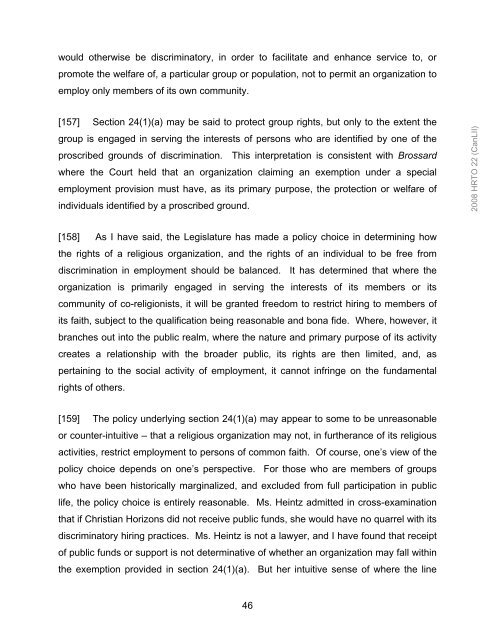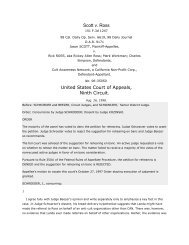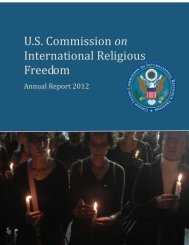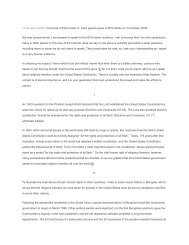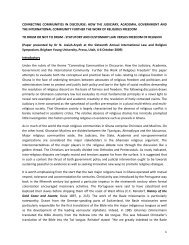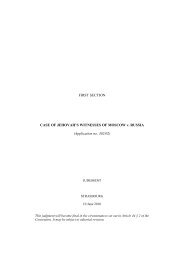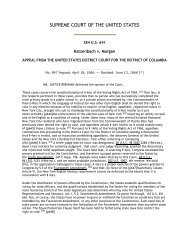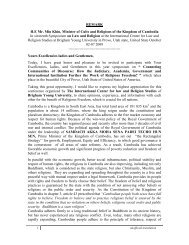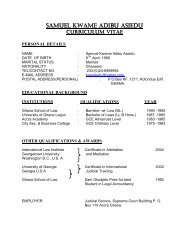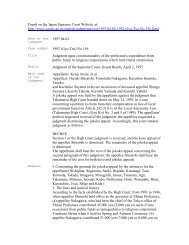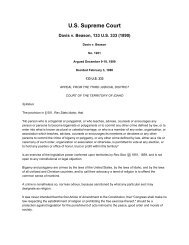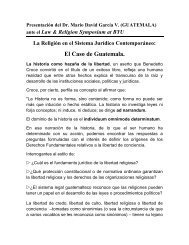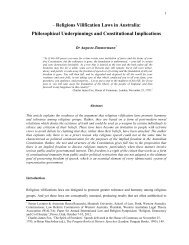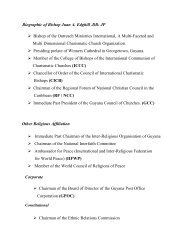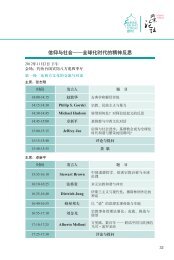Ruling (.pdf) - International Center for Law and Religion Studies
Ruling (.pdf) - International Center for Law and Religion Studies
Ruling (.pdf) - International Center for Law and Religion Studies
Create successful ePaper yourself
Turn your PDF publications into a flip-book with our unique Google optimized e-Paper software.
would otherwise be discriminatory, in order to facilitate <strong>and</strong> enhance service to, orpromote the welfare of, a particular group or population, not to permit an organization toemploy only members of its own community.[157] Section 24(1)(a) may be said to protect group rights, but only to the extent thegroup is engaged in serving the interests of persons who are identified by one of theproscribed grounds of discrimination. This interpretation is consistent with Brossardwhere the Court held that an organization claiming an exemption under a specialemployment provision must have, as its primary purpose, the protection or welfare ofindividuals identified by a proscribed ground.2008 HRTO 22 (CanLII)[158] As I have said, the Legislature has made a policy choice in determining howthe rights of a religious organization, <strong>and</strong> the rights of an individual to be free fromdiscrimination in employment should be balanced. It has determined that where theorganization is primarily engaged in serving the interests of its members or itscommunity of co-religionists, it will be granted freedom to restrict hiring to members ofits faith, subject to the qualification being reasonable <strong>and</strong> bona fide. Where, however, itbranches out into the public realm, where the nature <strong>and</strong> primary purpose of its activitycreates a relationship with the broader public, its rights are then limited, <strong>and</strong>, aspertaining to the social activity of employment, it cannot infringe on the fundamentalrights of others.[159] The policy underlying section 24(1)(a) may appear to some to be unreasonableor counter-intuitive – that a religious organization may not, in furtherance of its religiousactivities, restrict employment to persons of common faith. Of course, one’s view of thepolicy choice depends on one’s perspective. For those who are members of groupswho have been historically marginalized, <strong>and</strong> excluded from full participation in publiclife, the policy choice is entirely reasonable. Ms. Heintz admitted in cross-examinationthat if Christian Horizons did not receive public funds, she would have no quarrel with itsdiscriminatory hiring practices. Ms. Heintz is not a lawyer, <strong>and</strong> I have found that receiptof public funds or support is not determinative of whether an organization may fall withinthe exemption provided in section 24(1)(a). But her intuitive sense of where the line46


